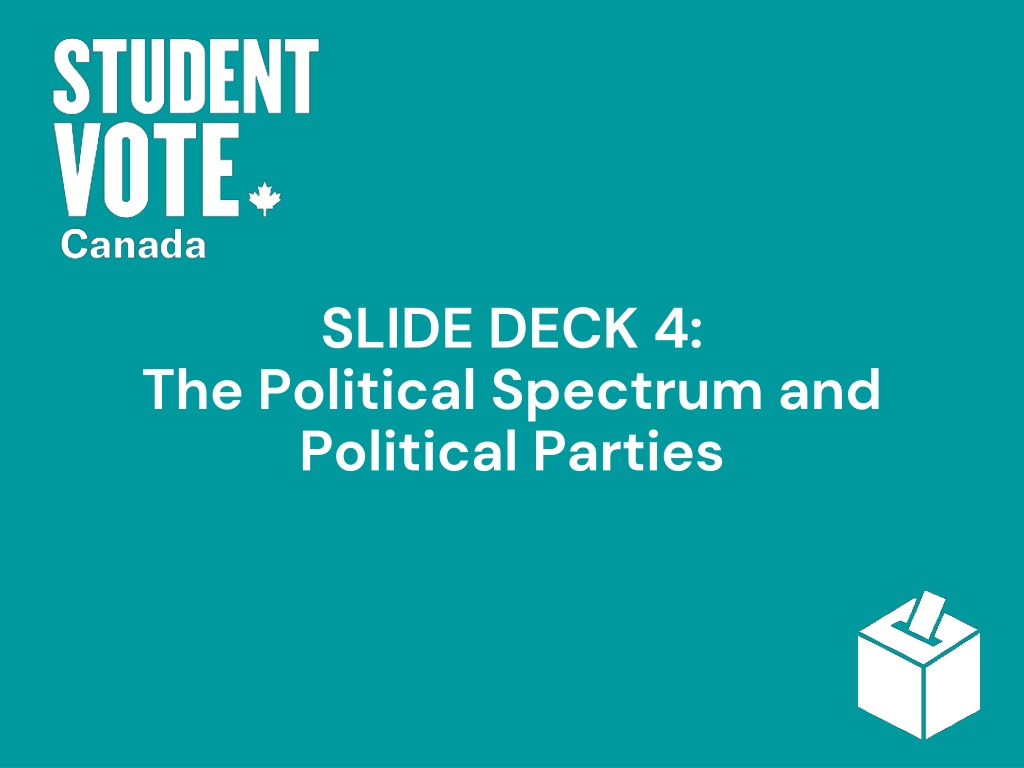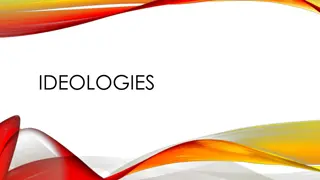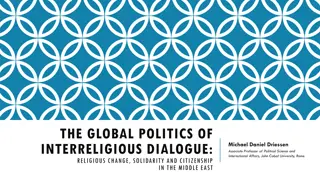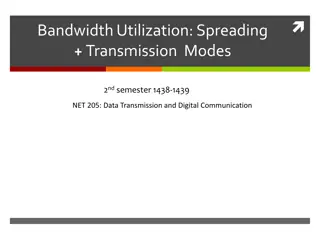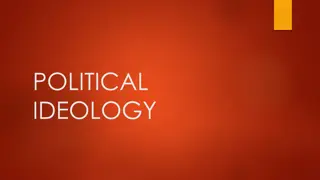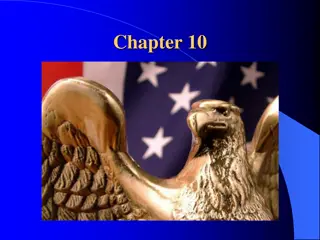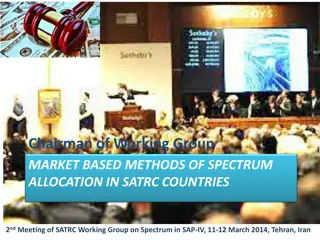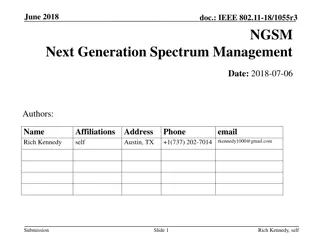Understanding the Political Spectrum and Ideologies
Explore the political spectrum, ideologies, and the role of government in society. Learn about the differences between the left and right, economic vs social issues, and the debate surrounding traditions and societal change. Dive into discussions on government services, taxes, traditions, and societal values.
Download Presentation

Please find below an Image/Link to download the presentation.
The content on the website is provided AS IS for your information and personal use only. It may not be sold, licensed, or shared on other websites without obtaining consent from the author. Download presentation by click this link. If you encounter any issues during the download, it is possible that the publisher has removed the file from their server.
E N D
Presentation Transcript
SLIDE DECK 4: The Political Spectrum and Political Parties
Political ideologies A political ideology is a set of shared ideas and beliefs about the role of government and how society should work.
The political spectrum The political spectrum provides a way to characterize and distinguish between different political ideologies, positions, and political parties.
Linear spectrum A linear spectrum is represented as a horizontal line. The left generally favours social equality, government involvement, and more social services. The right favours tradition, smaller government, and lower taxes.
Multi-dimensional spectrum When there is more than one axis, each represents a different set of issues. ECONOMIC ISSUES - Horizontal axis SOCIAL ISSUES - Vertical axis
Discussion Which do you think is better and why? a) Lower taxes and fewer government services a) Higher taxes and more government services
Economic issues: Left vs Right Left-leaning Right-leaning - Higher taxes - More government involvement in the economy - More social services/larger government - Lower taxes - Less government intervention/free markets - Fewer government services/smaller government
Discussion Which statement do you believe more strongly and why? a) Societies do not have to follow established traditions a) Traditions provide security and stability and must be respected
Social issues: Progressive vs Conservative - Societies do not have to follow established traditions Improvement of society through change Promotion of social justice values Progressive - - - Traditions provide security and stability and must be respected Preservation of established values Conservative -
Two-dimension grid A political spectrum quiz, such as Vote Compass, will place you on grid based on where you sit on each political dimension.
Political parties A political party is made up of a group of people who share a similar political ideology and goals about society and government. In order for the political party to have the chance to work towards its goals, the party tries to win an election and form government.
Do you know? Do you know the names of any political parties or party leaders at the federal level?
Registered parties (federal level) Animal Protection Party of Canada Marijuana Party Bloc Qu b cois Marxist-Leninist Party of Canada Canada s Fourth Front National Citizens Alliance of Canada Christian Heritage Party of Canada Communist Party of Canada New Democratic Party Conservative Party of Canada Parti pour l'Ind pendance du Qu bec Free Party Canada Green Party of Canada Parti Rhinoc ros Party Liberal Party of Canada People s Party of Canada Libertarian Party of Canada Veterans Coalition Party of Canada
Parties in the House of Commons Prior to the federal election, there were five parties represented in the House of Commons.
Reflection questions Do you agree with where you were placed on the political spectrum? Why or why not? What insights can you draw from the results of the Vote Compass: Canada Youth Edition about the federal political landscape? How are people s beliefs and values connected to their positions on political issues? What do you think has shaped your political views most and why? Why is it important to consider and respect others opinions and perspectives?
